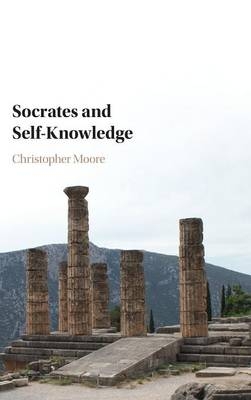
Socrates and Self-Knowledge
Seiten
2015
Cambridge University Press (Verlag)
978-1-107-12330-4 (ISBN)
Cambridge University Press (Verlag)
978-1-107-12330-4 (ISBN)
This book, the first systematic study of Socrates' interest in self-knowledge, offers new interpretations of both familiar and overlooked texts on self-knowledge in ancient philosophy and will interest researchers and upper-level students of ancient philosophy, Plato, Socrates, and selfhood.
In this book, the first systematic study of Socrates' reflections on self-knowledge, Christopher Moore examines the ancient precept 'Know yourself' and, drawing on Plato, Aristophanes, Xenophon, and others, reconstructs and reassesses the arguments about self-examination, personal ideals, and moral maturity at the heart of the Socratic project. What has been thought to be a purely epistemological or metaphysical inquiry turns out to be deeply ethical, intellectual, and social. Knowing yourself is more than attending to your beliefs, discerning the structure of your soul, or recognizing your ignorance - it is constituting yourself as a self who can be guided by knowledge toward the good life. This is neither a wholly introspective nor a completely isolated pursuit: we know and constitute ourselves best through dialogue with friends and critics. This rich and original study will be of interest to researchers in the philosophy of Socrates, selfhood, and ancient thought.
In this book, the first systematic study of Socrates' reflections on self-knowledge, Christopher Moore examines the ancient precept 'Know yourself' and, drawing on Plato, Aristophanes, Xenophon, and others, reconstructs and reassesses the arguments about self-examination, personal ideals, and moral maturity at the heart of the Socratic project. What has been thought to be a purely epistemological or metaphysical inquiry turns out to be deeply ethical, intellectual, and social. Knowing yourself is more than attending to your beliefs, discerning the structure of your soul, or recognizing your ignorance - it is constituting yourself as a self who can be guided by knowledge toward the good life. This is neither a wholly introspective nor a completely isolated pursuit: we know and constitute ourselves best through dialogue with friends and critics. This rich and original study will be of interest to researchers in the philosophy of Socrates, selfhood, and ancient thought.
Christopher Moore is Assistant Professor of Philosophy and Classics at Pennsylvania State University. He is the author of many essays in edited volumes and journals, including American Journal of Philology, Ancient Philosophy, Apeiron, British Journal for the History of Philosophy and Classical Quarterly.
1. Introduction: Socrates and the precept 'Know yourself'; 2. Charmides: on impossibility and uselessness; 3. Alcibiades: mirrors of the soul; 4. Phaedrus: less conceited than Typhon; 5. Philebus: pleasure and unification; 6. Xenophon's Memorabilia 4.2: owning yourself; 7. Conclusion: challenges and a defense; Bibliography; Index.
| Erscheint lt. Verlag | 9.10.2015 |
|---|---|
| Verlagsort | Cambridge |
| Sprache | englisch |
| Maße | 152 x 228 mm |
| Gewicht | 560 g |
| Themenwelt | Geisteswissenschaften ► Philosophie ► Philosophie Altertum / Antike |
| ISBN-10 | 1-107-12330-5 / 1107123305 |
| ISBN-13 | 978-1-107-12330-4 / 9781107123304 |
| Zustand | Neuware |
| Haben Sie eine Frage zum Produkt? |
Mehr entdecken
aus dem Bereich
aus dem Bereich
mit Sokrates, Seneca, Platon & Co. im Gespräch
Buch | Hardcover (2023)
FinanzBuch Verlag
CHF 25,20


